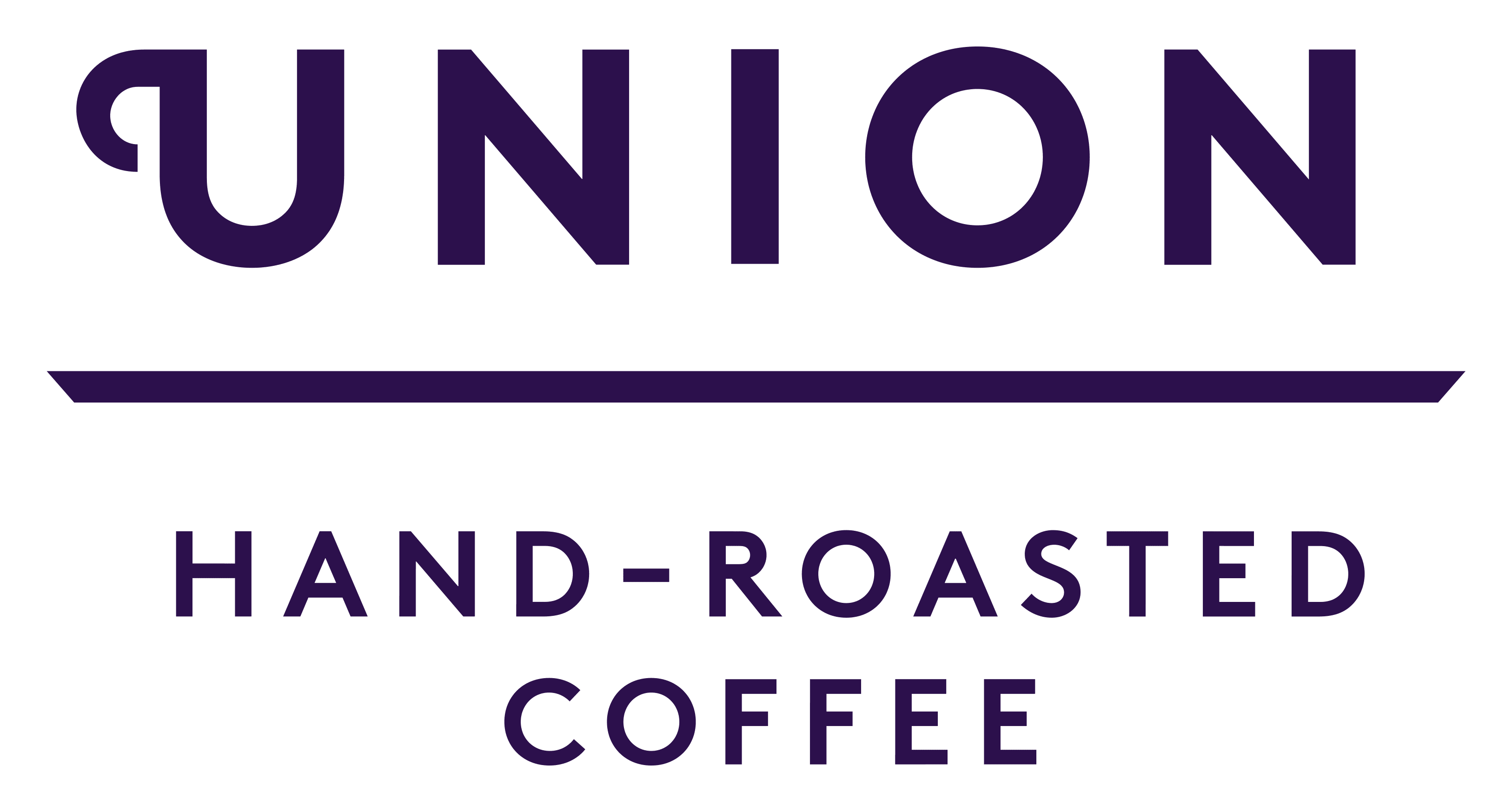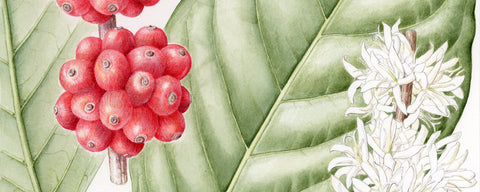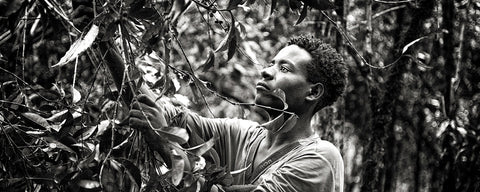There's nothing more exciting when a fresh delivery of green coffee reaches the roastery. So when our latest shipment from the Maraba Women's Group arrived, you can imagine just how happy we were! Introducing our latest limited parcel microlot, Women of Maraba. This special parcel is grown by an all-women group at Maraba, Rwanda, our longest-standing partnership of over 20 years. Want to learn more and hear from some of the women that produced it? Take a look here:
The History of Maraba & Union
Our longest-standing producer partner, dating back to 2003 – Union wouldn’t be what it is today without the Abahuzamugambi Ba Kawa Co-operative. We call them "Maraba", a name used both locally and internationally, after the original name of the area the cooperative is located in which is now called Huye.
Over the past 18 years, we’ve worked closely with Maraba and paid price premiums through our unique Union Direct Trade sourcing model. The co-operative has continued to develop and increased its capacity to assist its members. In doing so, the community has transformed with major developments in healthcare, schooling and housing…and of course, coffee quality.
Today, Maraba continue to be one of our most valued producer partners and their single origin coffee is one of our bestsellers. Over the past few years we've been able to source several high-quality limited parcel microlots from different washing stations, a testament to the increase in their quality and expertise over the years.
Read more about our partnership with Maraba here.

What is the Maraba women’s group?
For most women in rural Rwanda, access to income of their own is a big issue. It stands in the way of ensuring children’s basic education and getting an opportunity for a way out of poverty.
Women make up around 35% of the Maraba members, and the co-operative is challenging the traditional paradigms, giving women more autonomy of their finances and livelihoods. Maraba’s women's fund was created in 2020 and aims to encourage women to work together towards financial independence…and of course, produce unique lots of women-grown coffee.

How does it work?
- There are 640 members split into 23 groups.
- Each group meets once per week and brings between RWF 500 – RWF 5,000 (0.36p - £3.61), depending on how much they have that week, which is added together by the group leader. Depending on whether a member needs to be prioritised (for any unexpected costs such as for healthcare, for example), the money can be loaned to two or three members – and is paid back with 2% interest at the next meeting.
- Over the course of the year, savings from the group and interests are paid back to the members.
- The idea for the future is that the money can be invested into group projects. More capital is required to start projects but the Maraba co-operative aims to fund more and bigger projects.
- So far, the creation of the group has benefitted the women of Maraba, and they have big dreams for the future...
Interviews with the women’s groups

Venatie Mukakalisa
½ acre, 800 coffee trees, Kabuye Washing Station
Venatie has worked with Union since 2003, even being pictured on the early bags of Maraba!
1. What does coffee mean to you and your family?
Coffee means life to me and my family. I’ve met good people who’ve changed my life through coffee. Now, we have better life and hope for tomorrow because I am a coffee farmer.
2. What role does the co-operative play in your life?
Our co-operative’s agronomists give advice on how to take good care of my coffee trees to get a good harvest. I also get a second payment as a member of the co-operative every year.
The co-operative lends me money very low interest whenever I need it. Last year, my daughter was ill and I needed money for her to see a good doctor so I requested a loan from the co-operative through the farmers' group of my village and quickly received it. My daughter survived a breast tumour because I could pay for her surgery on time.
3. How did speciality coffee change your life?
We used to sell our coffee cherries to random people who used to pass by our village. The price was very low and I didn’t know where my coffee was sent afterwards or how great it tasted! My children and I had a very difficult life due to a lack of means of living.
When the co-operative started in our region, I joined and started to deliver my coffee cherries to the washing station. I saw how coffee is processed, learned more about high-value speciality coffee and the price of my cherries got increased. So, I planted more coffee trees – increasing from 400 to 800.
The best thing that happened to me was meeting Jeremy and Steven from Union back in 2002. They have been supporting us since then, helping us build the foundations for a good livelihood. Now, we look forward to getting better and better. My family and I are very thankful for the support we got through coffee.

Clautilde Niyonsaba
10 acres, 240 trees, Cyarumbo Washing Station
1. What does coffee mean to you and your family?
Coffee has been a great way for me to meet people and take up leadership positions as I was elected to be on our co-operative’s leading committee for six years. This opportunity opened my mind a lot and I can now lead a meeting and even train people about coffee farming. As a woman in our culture, if it was not for coffee, I would not have self-esteem. In addition, coffee makes everyone happy especially when it’s coffee harvest time.
2. What role does the co-operative play in your life?
They’ve been helpful in improving my livelihood and shaped me to become who I am today. They gave me a goat and a pig so I was able to start livestock farming as well as coffee – this has also been helpful as livestock can help create coffee fertilizers and help me to save money.
I've borrowed money from the co-operative to pay school fees for our children and to pay for electricity in our house. From the women’s fund, I borrowed RWF 60,000 in June 2021 to stock up on beans. I then sold them. After paying back the loan, I’d made an extra RWF 40,000.
3. What message would you send to the people that drink the coffee you grow?
Maraba women coffee is really great! We take good care of our coffee from the farm with passion and we meticulously process it. I would also thank them because the money they pay for our coffee gets to us as well - and when our co-operative grows, we also grow together.

Beltilde Nyandwi
5 hectares, 2,000 coffee trees, Cyarumbo
1. What does coffee mean to you and your family?
Coffee is a means which pays off in many ways. Not only does coffee benefit me from its sales and opportunities such as paying school fees, but also as a woman, you get to be respected in our community.
2. What role does the co-operative and women’s group play in your life?
Last year, the co-operative loaned me money (RWF 200,000) which allowed me to start a small shop in our village where I sell what I harvest from my farm such as bananas, onions, peanuts, and beans. I’m happy to be part of our co-operative because we get to meet and share our ideas and challenges which inspires me to keep on working hard. I never feel alone because I meet my colleagues every week!
The interest for loans in the women’s group are very low which makes it easy and accessible to use. We want to start getting larger loans which would allow us to invest in bigger projects. I personally have an idea to start delivering my different harvests to the cities which would mean I could earn more and be able to pay back the loan.
3. What message would you send to the people that drink the coffee you grow?
We take good care of our coffee with love and passion therefore I encourage you to keep on buying Maraba women's coffee and enjoy its great taste. As we sing here, the coffee is sweet and has very good flavours!
Fancy trying out Venantie, Women's Lot and enjoying the coffee grown by the Maraba Women’s Group? Click here to get yourself a bag...


